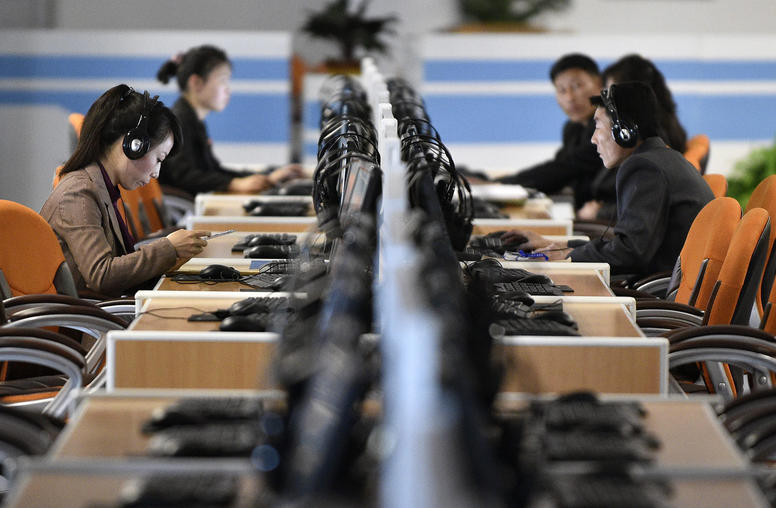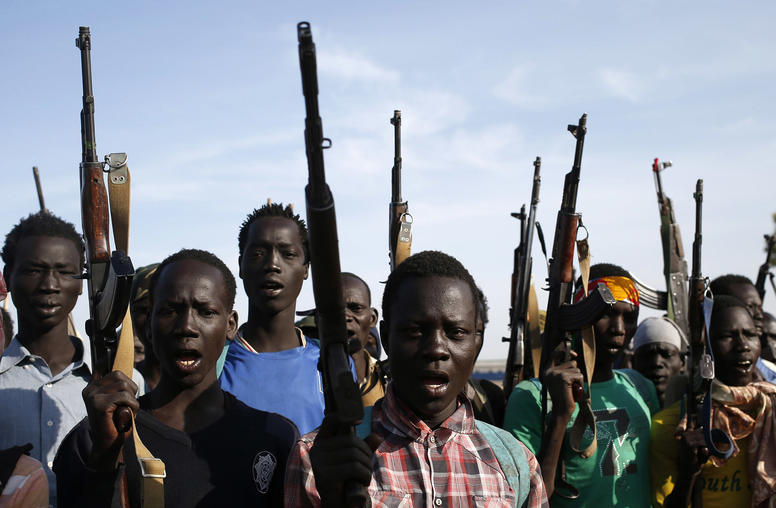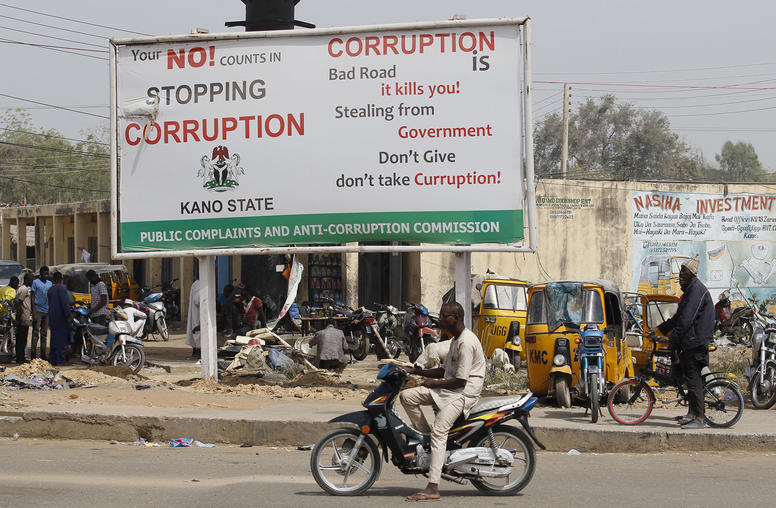Peaceworks
Publications
Articles, publications, books, tools and multimedia features from the U.S. Institute of Peace provide the latest news, analysis, research findings, practitioner guides and reports, all related to the conflict zones and issues that are at the center of the Institute’s work to prevent and reduce violent conflict.

Jacob Stokes on China and Sovereignty
Under the Trump administration, the U.S. has made protecting sovereignty a core principle of its foreign policy and U.S.-China relations. While Beijing prioritizes protecting sovereignty at home, “its actions abroad raise questions about whether it’s interested in protecting the sovereignty of other countries,” says USIP’s Jacob Stokes.

The Need for a New U.S. Information Strategy for North Korea
Through the successive regimes of Kim Il Sung, Kim Jong Il, and Kim Jong Un, North Korea has maintained near-total control over the information that reaches its citizens. Now, as more and more North Koreans use networked devices such as smartphones, the regime is employing modern forms of censorship and surveillance to control information and curtail freedom of expression. This report argues that the United States and its allies need a new information strategy to end the social isolation of the North Korean people and improve their long-term welfare.

Ceasefire Monitoring in South Sudan 2014–2019: “A Very Ugly Mission”
More than five years after South Sudan’s first ceasefire agreement, ceasefire monitors are still on the ground. The hope was that their work would help overcome the mistrust between rival factions, halt ongoing violence, and deter further violations. Drawing on interviews with monitors, combatants, politicians, civil society representatives, diplomats, peacekeepers, and others, this report examines the history of ceasefire monitoring in South Sudan and offers recommendations for donors supporting future monitoring processes in South Sudan and elsewhere.

Syria Study Group Final Report
The United States cannot avoid or ignore the conflict in Syria. From the outset of hostilities, minimizing American involvement in the war and safeguarding U.S. national security interests have proven to be incompatible goals. This will remain the case for the foreseeable future. The essential question before American policymakers is not whether the United States should keep or with- draw its forces in Syria, but what strategy and mix of tools will best protect the United States from the conflict’s reverberations and advance American interests. This report sets out such a strategy.

Donor Assistance in the Transparency and Accountability Movement
Focusing on transparency and anti-corruption issues, this report discusses the findings from a series of participatory workshops and more than seventy interviews with social movement actors and organizations in Kenya, Nigeria, and Ukraine. It looks at the different ways social movement actors in these countries were influenced by foreign financial support and training, including in terms of the goals they set, the tactics and activities they pursue, and whether receiving foreign support compromises their legitimacy with their domestic constituents.

Brian Harding on U.S.-China Competition in Southeast Asia
As the United States and China focus more on Southeast Asia, USIP’s Brian Harding says the region’s 10 diverse nations have “become a pretty impressive bloc … [they] realize that U.S.-China competition is here to stay and they’re trying to do their best to navigate it and have agency of their own.”

Ambassador Hesham Youssef on a New Middle East Peace Quartet
With the Israeli-Palestinian peace process at a standstill, USIP’s Ambassador Hesham Youssef talks about a new, diverse quartet of states that can help reinvigorate talks, saying, “joining hands, they can influence both the Arab position and the European position.”

Sarhang Hamasaeed on the U.S.-Iraq Strategic Dialogue
As the United States and Iraq engage in important talks this month, USIP’s Sarhang Hamasaeed says the focus should be “Iraq-centric policy,” even as Baghdad “is under a lot of pressure from Iran and its allies … to use the dialogue to put pressure on the United States to withdraw its troops and limit U.S. influence.”

Sarhang Hamasaeed on the New Iraqi Prime Minister’s U.S. Visit
As Prime Minister Mustafa Al-Kadhimi makes his first official visit to Washington, USIP’s Sarhang Hamasaeed says the trip is a chance to reset relations between the two countries, but “it’s really important to not define the relationship … just in terms of security,” and also focus on Iraq’s economic challenges and recovery from ISIS.

Searching for COVID-19 Ceasefires: Conflict Zone Impacts, Needs, and Opportunities
On March 23, 2020, as COVID-19 was first appearing in many conflict-affected areas, UN Secretary-General António Guterres issued a call for warring parties to cease hostilities and instead wage battle against the pandemic. Drawing on an examination of conflicts in Afghanistan, Colombia, Cameroon, Israel and Palestine, Libya, the Philippines, Syria, Ukraine, and elsewhere—this report looks at how COVID-19 has affected conflict parties’ interests, positions, and capacities, and provides recommendation for how the international community leverage the pandemic to promote peace.